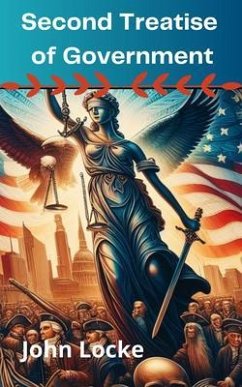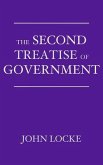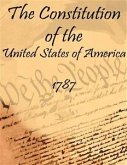Embark on a fascinating intellectual adventure as you delve into John Locke's "Second Treatise of Government." Written in 1689, during a turbulent time, this masterpiece boldly challenged dominant notions of political power, revealing a revolutionary blueprint for modern governance.
In a riveting story of 4,000 characters, Locke invites readers to question the foundations of power. This treatise is a symphony of Enlightenment ideals, in which Locke, eloquently and passionately, argues that political legitimacy flows only from the consent of the governed. It weaves a story of individual rights, deftly depicting a social contract in which citizens voluntarily empower the government to protect their inherent rights to life, liberty, and property. product.
Locke's prose was not simply an academic exercise but also a passionate appeal against the tyranny that was tormenting his age. Through the lens of reason and empirical observation, he creates an intellectual battlefield where authoritarianism and divine rights crumble before the resilience of human rights and democratic principles.
The treatise, a philosophical tour de force, explores the concept of tabula rasa - the blank slate of human nature - challenging preconceived notions of innate knowledge. Locke's discovery of the malleability of the mind and the formation of ideas formed the basis of his political theories, inviting readers to think about the origins of power and the development of norms. social ink.
As readers turn the pages, they discover Locke's strong belief in the right to revolution. It offers a powerful manifesto to challenge oppressive regimes, asserting that when governments betray their duty to protect individual freedoms, citizens have an inherent right to revolt. This resounding call to arms resonates throughout history, inspiring revolutions and shaping human rights discourse.
Locke's treatise was not limited to political philosophy; it extended its leanings to discussions of property rights and economic theory. He wisely defended the idea that individuals, through work, acquired property, thereby laying the foundations for the principles of capitalism and that private property would shape the capitalist process. economicism.
The lasting importance of the "Second Treaty of Government" cannot be denied. Its echoes resonate in the development of modern democracies, in the drafting of constitutions and in the protection of human rights around the world. Locke's ideas permeated the social fabric that promoted freedom, justice, and the rule of law.
In short, John Locke's "Second Treatise on Government" is not simply a philosophical treatise; it is a call to wisdom, a hymn to individual freedom and the foundation of building democratic societies.
Hinweis: Dieser Artikel kann nur an eine deutsche Lieferadresse ausgeliefert werden.
In a riveting story of 4,000 characters, Locke invites readers to question the foundations of power. This treatise is a symphony of Enlightenment ideals, in which Locke, eloquently and passionately, argues that political legitimacy flows only from the consent of the governed. It weaves a story of individual rights, deftly depicting a social contract in which citizens voluntarily empower the government to protect their inherent rights to life, liberty, and property. product.
Locke's prose was not simply an academic exercise but also a passionate appeal against the tyranny that was tormenting his age. Through the lens of reason and empirical observation, he creates an intellectual battlefield where authoritarianism and divine rights crumble before the resilience of human rights and democratic principles.
The treatise, a philosophical tour de force, explores the concept of tabula rasa - the blank slate of human nature - challenging preconceived notions of innate knowledge. Locke's discovery of the malleability of the mind and the formation of ideas formed the basis of his political theories, inviting readers to think about the origins of power and the development of norms. social ink.
As readers turn the pages, they discover Locke's strong belief in the right to revolution. It offers a powerful manifesto to challenge oppressive regimes, asserting that when governments betray their duty to protect individual freedoms, citizens have an inherent right to revolt. This resounding call to arms resonates throughout history, inspiring revolutions and shaping human rights discourse.
Locke's treatise was not limited to political philosophy; it extended its leanings to discussions of property rights and economic theory. He wisely defended the idea that individuals, through work, acquired property, thereby laying the foundations for the principles of capitalism and that private property would shape the capitalist process. economicism.
The lasting importance of the "Second Treaty of Government" cannot be denied. Its echoes resonate in the development of modern democracies, in the drafting of constitutions and in the protection of human rights around the world. Locke's ideas permeated the social fabric that promoted freedom, justice, and the rule of law.
In short, John Locke's "Second Treatise on Government" is not simply a philosophical treatise; it is a call to wisdom, a hymn to individual freedom and the foundation of building democratic societies.
Dieser Download kann aus rechtlichen Gründen nur mit Rechnungsadresse in A, D ausgeliefert werden.
Hinweis: Dieser Artikel kann nur an eine deutsche Lieferadresse ausgeliefert werden.









